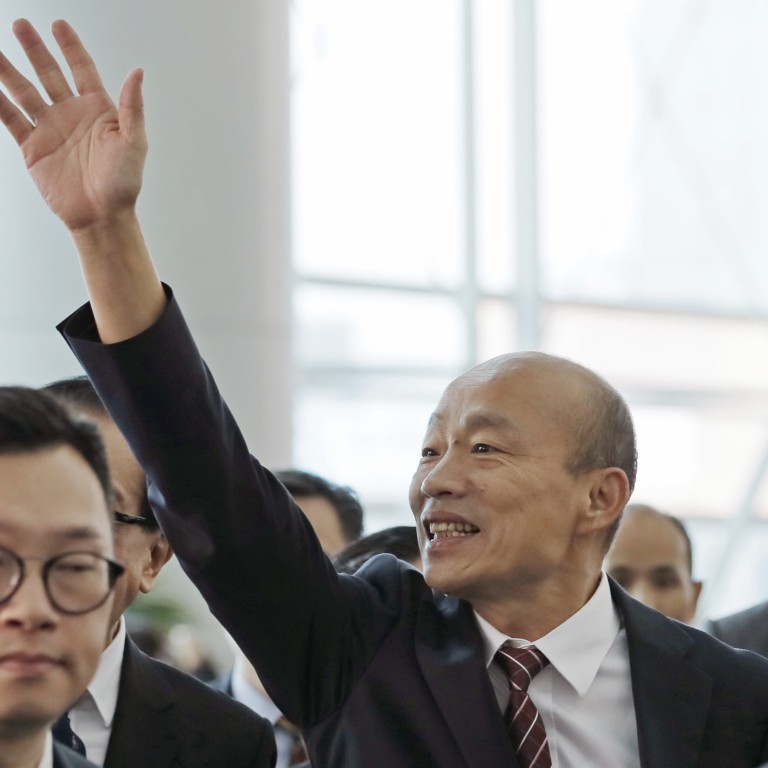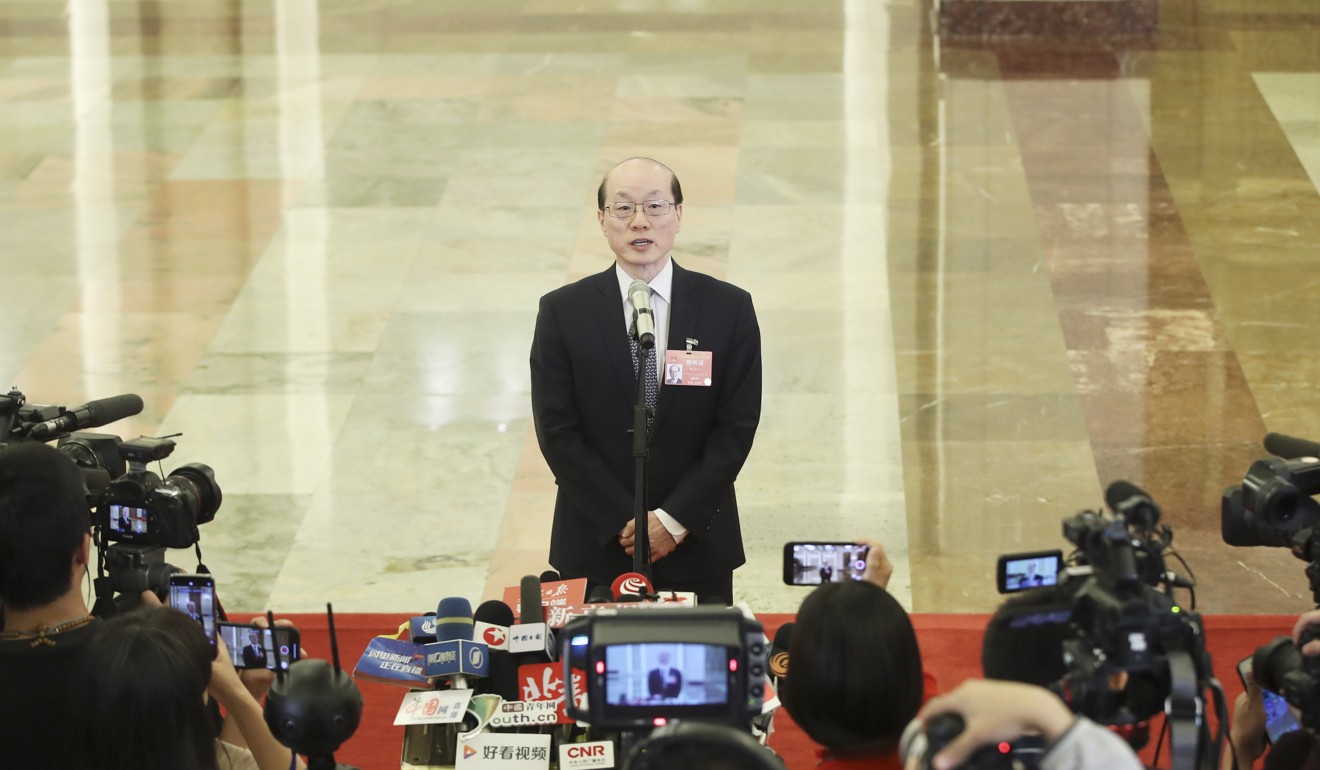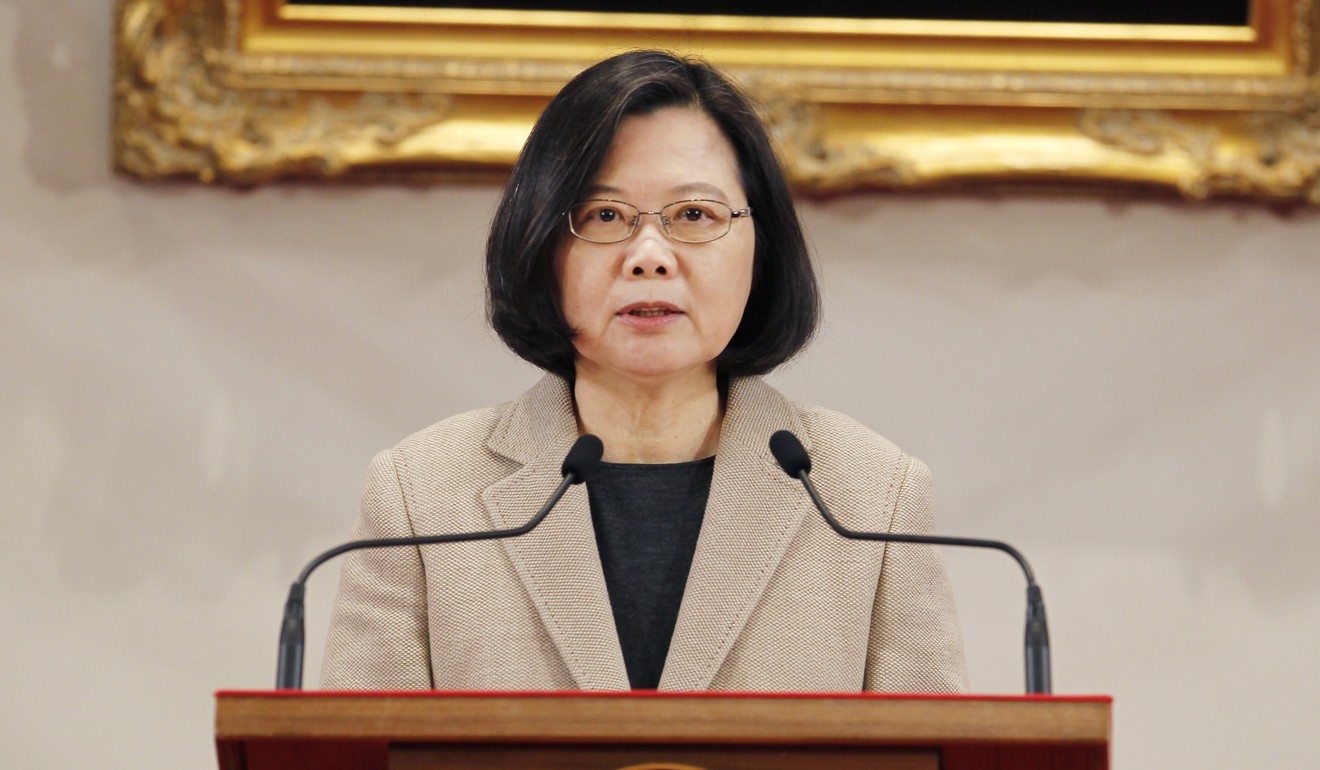
Senior Chinese officials give Taiwanese politician Han Kuo-yu the red carpet treatment on ‘non-political’ tour of mainland
- Possible KMT presidential candidate insists his visit is not intended to be political, but he has been welcomed by the head of Beijing’s Taiwan Affairs Office
- Han reiterates support for the ‘1992 consensus’, a model for unification rejected by President Tsai Ing-wen
A rising Taiwanese politician met a senior Beijing official responsible for cross-strait relations on Monday, and used the occasion to reiterate his support for a two-decade old consensus on unification.
Although Han Kuo-yu, the mayor of Kaohsiung, insisted that his tour was only intended the drum up business for the city, the meeting with Liu Jieyi, the head of the Taiwan Affairs Office, in Shenzhen was the latest with senior officials.
Han has also met Wang Zhimin and Fu Ziying, the directors of Beijing’s liaison offices in Hong Kong and Macau respectively, and Shenzhen’s party chief Wang Weizhong during his visit.
His trip has attracted criticism inside Taiwan, with President Tsai Ing-wen warning that Beijing may try to use Han to introduce a “one country, two systems” policy for unification.
Han, a member of the opposition KMT is widely seen as one of the front runners in next year’s presidential election after his mayoral election victory last year in a city that has traditionally been a stronghold of Tsai’s Democratic Progressive Party.

His support for the “1992 consensus” – a verbal understanding reached in that year between the Chinese Communist Party and the KMT that there is only “one China”, is considered a political boost for Beijing.
On Monday he repeated his support for this consensus, telling Liu it was the “most powerful stabilising factor in cross-strait relations”, according to Taiwanese media reports.
He said all exchanges between the island and the mainland were important, adding:“Now I reiterate that I support the ‘1992 consensus’... I hope there will be more exchanges across the strait and people will become good friends.”
Liu said people from both sides of the strait were one family and Beijing welcomed more exchanges between cities on the basis of the“1992 consensus”.
“We will continue to share development opportunities with Taiwanese people and deepen cross-strait integration,” he said.

Liu, continued that “people on both sides of the strait should join hands to support the ‘1992 consensus’ and oppose Taiwan independence”.
But Taiwan’s Cross-Strait Policy Association Secretary-General Wang Chih-sheng said Han’s meetings with mainland officials had aroused suspicion on the island.
“As a popularly elected local government chief in Taiwan, Han’s meetings have undoubtedly aroused grave public concern that he has been trapped in the ‘one country, two system’ formula framed by Beijing,” said Wang
Taiwan’s Mainland Affairs Office also said Han must get Taipei’s approval to negotiate or make deals with Chinese officials, otherwise he would be breaking the law.
Han’s visit to the mainland is officially designated as an opportunity to promote agriculture, tourism and investment opportunities for the city and will focus on technology, including artificial intelligence.
During his stay in Shenzhen, Han visited the city’s civic centre and the Qianhai and Shekou districts, which form part of Guangdong’s Pilot Free Trade Zone, and witnessed the signing of an agriculture produce deal worth 200 million yuan (US$29.8 million).
Cross strait relations took a turn for the worst following the 2016 election victory of Tsai’s independence-learning DPP and Beijing has tried to increase the pressure on Taiwan by peeling away some of its last diplomatic allies and conducting a series of military drills around the island.
Beijing regards Taiwan as breakaway province that must eventually be reunited with the mainland, by force if necessary, and views any pro-independence activity as contrary to China’s core national interests.
In a speech in January, Chinese President Xi Jinping said that reunification with Taiwan was a key part of China’s “national rejuvenation” and the issue of Taiwan could not be passed from generation to generation.
He suggested the “one country, two systems” model used in Hong Kong could provide a template for unity, but Tsai dismissed his overtures saying most people in Taiwan opposed the policy.

